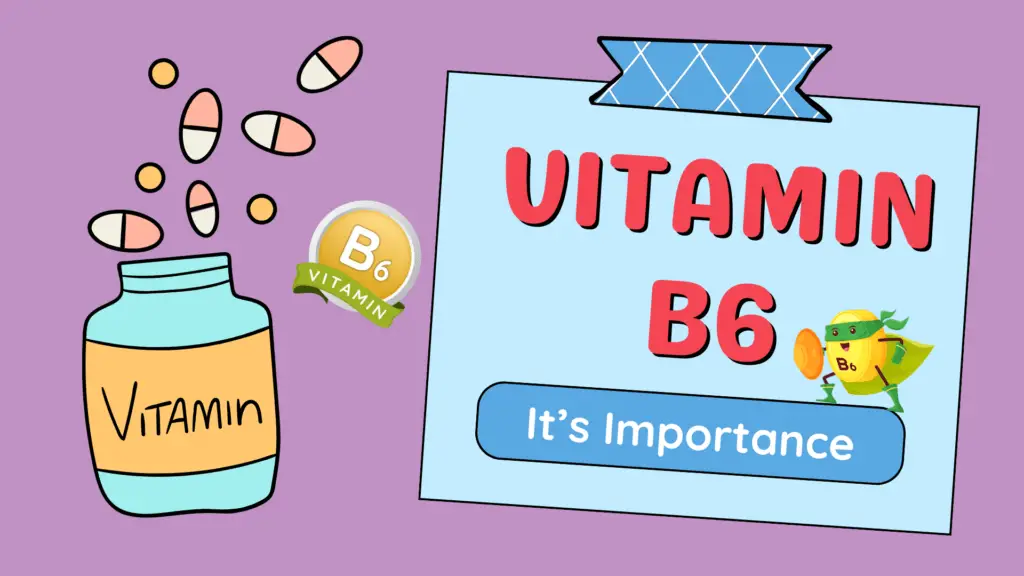
Overview
An essential water-soluble vitamin B6, known as pyridoxine, is vital for general health. From supporting brain function to increase immunity and metabolism, Vitamin B6 is essential for many body processes. Lack of this vitamin can cause mood swings, tiredness, and compromised immunity. But why should you ensure you receive enough Vitamin B6, and what benefits it offers the body? Let’s inspect its advantages, sources, and deficiency symptoms.
Vitamin B6: What Is It?
A B-complex vitamin B6 helps more than one hundred enzymatic processes linked to metabolism. Essential for energy generation, it breaks down carbs, lipids, and proteins. Furthermore, engaged in neurotransmitter synthesis is vitamin B6, which helps to control mood and maintain brain function. Unlike fat-soluble vitamins, your body does not store Vitamin B6, so you must have a consistent diet.
Vitamins B6’s Health Advantages
Supports Brain Health and Mood Regulation
Among the most well-known advantages of vitamin B6 is its part in brain function. It aids in synthesizing dopamine and serotonin neurotransmitters to control mood. Studies indicate that enough Vitamin B6 could help ease symptoms of anxiety and sadness.
Boosts Immunity
The body produces large numbers of infection-fighting white blood cells, which depend on vitamin B6. A vitamin B6 shortfall can reduce the immune response, increasing a person’s susceptibility to disease.
Promotes Heart Health
Homocysteine, an amino acid, raises the risk of heart disease. Vitamin B6 helps control homocysteine levels, supporting cardiovascular health.
Enhances Metabolism and Energy Production
Metabolizing carbs, proteins, and lipids, this vitamin is essential for turning them into accessible energy. If you often feel tired, you should see whether your diet provides enough vitamin B6.
Supports Hormonal Balance
Vitamin B6 aids in controlling hormonal changes, particularly in women. It is often used to reduce PMS symptoms, including irritability and mood swings.
Signs And Symptoms Of Vitamin B6 Deficiency
Deficiency of vitamin B6 can lead to several health problems, including:
Weakness and weariness
Changing mood and irritability
Dried lips and cracked lips
Nervous disorders include numbness and tingling.
weakened immunity
Pregnant women, older adults, and kidney disease patients frequently experience vitamin B6 deficiency.
Best Food Sources Of Vitamin B6
A balanced diet is the easiest approach to satisfy your daily vitamin B6 needs. These are some of the finest dietary sources:
Chicken, turkey, salmon, tuna, eggs—animal-based sources.
Bananas, avocados, potatoes, spinach, and chickpeas are among plant-based sources.
Cereals, soy products, and nutritional yeast are among fortified foods.
Recommended Daily Intake and Supplementation
Age and gender affect the advised daily intake (RDI) for vitamin B6:
Adults (19–50 years): 1.3 mg/day
Women who are expecting: 1.9 mg/day
Breastfeeding women: 2.0 mg daily
While food is the best source of Vitamin B6, certain people may need pills. Still, too much intake—above 100 mg/day—may cause nerve damage and other health issues.
Conclusion
From supporting brain function to increase metabolism and heart health, vitamin B6 has many health advantages. Maintaining general well-being and avoiding deficiency-related symptoms can depend on ensuring a sufficient intake of foods high in vitamin B6. See a healthcare expert on your diet and choices for supplements if you believe you have a deficiency.


